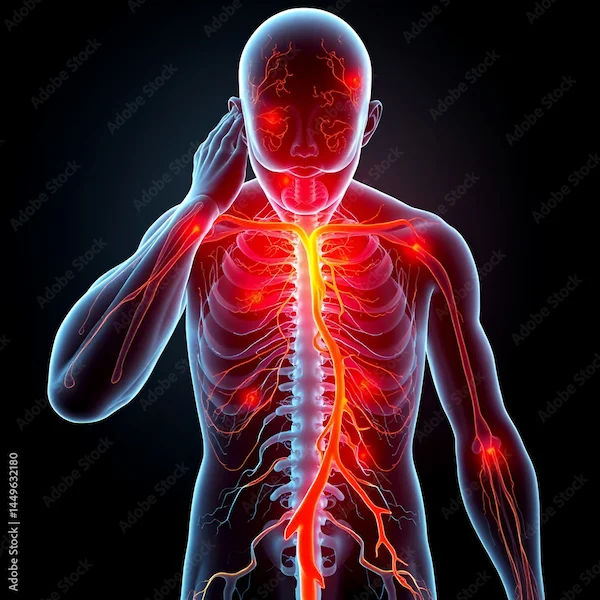Vitamin D Deficiency in Pregnancy and Testing
Discover why Vitamin D is vital during pregnancy, the signs of deficiency, who should get tested, and how to boost levels safely through diet, sun exposure, and supplements.

Written by Dr. Vasanthasree Nair
Reviewed by Dr. Rohinipriyanka Pondugula MBBS
Last updated on 20th Aug, 2025

Introduction
Pregnancy is a beautiful journey, but it also comes with its share of challenges, one of them being Vitamin D deficiency. Many expecting mothers don’t realize how crucial this vitamin is for their health and their baby’s development. If left untreated, low Vitamin D levels can lead to complications for both mother and child.
In this article, we’ll explain:
What Vitamin D deficiency is
Why it’s especially important during pregnancy
Common symptoms to watch for
How to test for it
Simple ways to boost your Vitamin D levels
Why is Vitamin D Important During Pregnancy?
Vitamin D is often called the "sunshine vitamin" because our bodies produce it when exposed to sunlight. It plays a vital role in:
Bone health: Helps absorb calcium, keeping your bones and your baby’s bones strong.
Immune support: Protects against infections and inflammation.
Baby’s development: Essential for fetal bone growth and reducing risks of preterm birth.
Unfortunately, many pregnant women have low Vitamin D levels due to:
Limited sun exposure (especially in winter or if using sunscreen)
Darker skin (melanin reduces Vitamin D production)
Poor dietary intake (few foods naturally contain Vitamin D)
Obesity (Vitamin D gets stored in fat, making less available in the blood)
Signs of Vitamin D Deficiency in Pregnancy
Many women with Vitamin D deficiency don’t show obvious symptoms, but some may experience:
Fatigue and weakness (more than usual pregnancy tiredness)
Muscle or bone pain (especially in the back, hips, or legs)
Frequent infections (weakened immune system)
Mood swings or depression (Vitamin D affects brain function)
Slow wound healing
If you notice these signs, it’s best to get tested, especially if you’re at higher risk.
Who Should Get Tested for Vitamin D Deficiency?
Doctors often recommend Vitamin D testing if you:
Have limited sun exposure (indoor jobs, covered clothing)
Have darker skin
Are overweight
Have a history of bone disorders (like osteoporosis)
Experience unexplained muscle pain or fatigue
A simple blood test (25-hydroxy Vitamin D test) can check your levels.
How to Book a Test?
If you’re concerned about your Vitamin D levels, you can easily book a test through Apollo 24|7. Just download the app or visit the website to schedule a home collection or lab visit.
How to Improve Vitamin D Levels During Pregnancy
The good news? Vitamin D deficiency is preventable and treatable! Here’s how:
1. Get Safe Sun Exposure
Spend 10-15 minutes in the sun (early morning or late afternoon) without sunscreen.
Expose arms and legs for better absorption.
2. Eat Vitamin D-Rich Foods
While few foods naturally contain Vitamin D, you can include:
Fatty fish (salmon, mackerel, sardines)
Egg yolks
Fortified foods (milk, cereals, orange juice)
3. Take Supplements (If Recommended)
Many pregnant women need Vitamin D supplements (usually 600–2000 IU/day). Always consult your doctor before starting any supplements.
4. Maintain a Healthy Weight
Excess body fat can trap Vitamin D, making less available in your bloodstream. A balanced diet and light exercise (as approved by your doctor) can help.
What Happens if Vitamin D Deficiency is Ignored?
Untreated deficiency can lead to:
For the mother:
Increased risk of gestational diabetes
Higher chance of C-section delivery
Bone softening (osteomalacia)
For the baby:
Low birth weight
Weak bones (rickets risk)
Higher risk of asthma or allergies
That’s why early testing and correction are crucial!
Final Thoughts
Pregnancy is a time to prioritize your health and Vitamin D plays a big role in keeping you and your baby safe. If you suspect a deficiency, get tested (Apollo 24|7 makes it easy!) and make sure that you follow your doctor’s advice on supplements. Spending some time in the sun safely and a balanced diet can help.
Consult Top Specialists
Consult Top Specialists

Dr. Suvadeep Sen
Critical Care Specialist
12 Years • MBBS, MD, FNB (CRITICAL CARE MEDICINE), EDIC
Mumbai
Apollo Hospitals CBD Belapur, Mumbai
Dr. Gaddam Manoj
General Practitioner
1 Years • MBBS
Hyderabad
Aaradhya clinic, Hyderabad
Dr. Sahana B
General Practitioner
3 Years • MBBS
Koppal
Khushi multi-speciality hospital, Koppal

Dr. Mainak Baksi
General Practitioner
13 Years • MBBS , MD (MPH)
Howrah
Mainak Baksi Clinic, Howrah
(50+ Patients)

Dr Suseela
General Physician
5 Years • MBBS
Bengaluru
Apollo Medical Center, Marathahalli, Bengaluru




